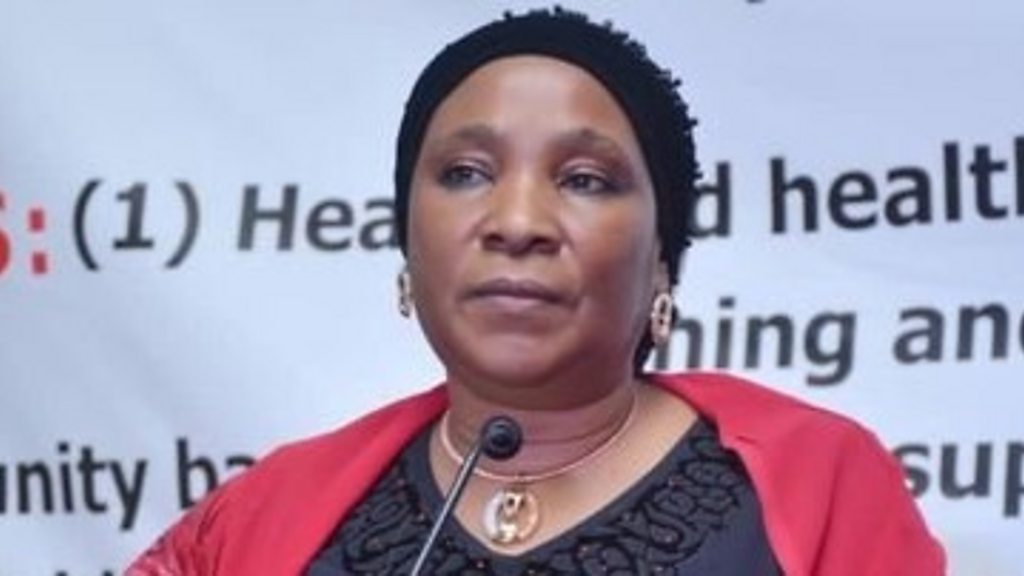- Integrative Medicine Making Little Progress
By Louis Achi
 Zainab Ujudud Shariff
Zainab Ujudud Shariff
Nigeria is blessed with over 10,000 species of medicinal plants yet she has not utilized even twenty per cent of this bounty despite having arable land where these plants grow across all the zones of the country.
This position was expressed by the Pioneer Director, Traditional Complementary and Alternative Medicine (TCAM) Department, Federal Ministry of Health, Pharm. Zainab Ujudud Shariff, who spoke to the Africa Health Report recently.
Sharrif also stated that Integrative Medicine, recognized by WHO has not been making much progress in Nigeria while some countries like Germany, India, Japan, and USA are benefiting from it. Integrative medicine is a combination of orthodox, traditional complementary and alternative medicines, Sharrif explained.
According to the pharmacist, “You can’t discuss traditional medicine without thinking about the products. The main product is medicinal plants and Nigeria is blessed with over 10,000 species of medicinal plant products. Yet, we have not utilized even twenty percent. Yet, we have arable land and these medicinal plants are all available in all the zones of this country.”
Sharrif also wished states appreciated the value of medicinal plants. Her word: “I wish that each state governor would know the value of its medicinal plants. If you know the value of the medicinal plants, then you know the value addition it will generate which translates to whole lot of revenue. Apart from the health benefits, there would be social and economic benefits.
“If we know the importance of medicinal plants, we will vastly cultivate them and when you cultivate them, are you not creating jobs? Medicinal plants have health benefits and environmental benefits. You are looking at issues of climate change.
“Then, there are also the benefits of value addition in processing medicinal plants. All these imported products are bought at a high cost. We have refused to believe in what we have. We have refused to harness, and we have refused to listen to the people that are experts in this field. We have refused to support research as much as we can.”
The pharmacist also rued Nigeria’s reluctance to listen to the experts or believe in what the country has. “Medicinal plants have health benefits and environmental benefits. You are looking at issues of climate change. Then, there are also the benefits of value addition in processing medicinal plants. All these imported products are bought at a high cost. We have refused to believe in what we have.” She said.
She also said that, “We have refused to harness, and we have refused to listen to the people that are experts in this field. We have refused to support research as much as we can. I am looking at a very lucrative area and these plants are found in states. The state governors should look inwards. They should look at what they have. For example, I wish the Sokoto State governor, knew the value of garlic and onions he has.
“If he sets up a processing farm for garlic, you would be surprised. If you do not harness what you have in front of you, that is God-given treasures – then you can never move forward. You can’t rely on only what is being brought from outside.”
According to Sharrif, “State governors have the advantage, and they can massively cultivate these medicinal plants and process them. All they need to do is contact the relevant agency such as the Ministry of Health and the (TCAM) department.
“They can collaborate with NAFDAC, NIPRID and then, of course, private partners. The Chinese and Indian are coming to seek collaboration and set up herbal industries. We advocate for national standards first before international standards.
“What can Nigeria eat? Let our own people do our own standards. I would say West African standards first. We can’t keep emulating foreigners. Our health indices are not improving because we refuse to develop the local content that can help us. That is the truth.”
She told Africa Health Report that she is advocating integrative medicine for hospitals of Traditional Complementary and Alternative Medicine (TCAM).
In her words: “TCAM Department is new. We started in just 2018. It used to be a division. I am the pioneer and incidentally, pioneer Director. We are looking at collaboration with the technical experts, for instance, from China. We want China to come and set up a Nigerian (TCAM) hospital. The same principle goes with the Indians.
“That way, we have these systems that are officially accepted and can be officially accessed by the populace. Addressing these challenges would improve health indices and would go a long way in preventing health challenges because the TCAM focuses more on prevention.”
She also clarifies the TCAM Department of the Federal Ministry of Health that is driving the novel medical niche adding that “You have come to a relevant department that is doing that.”
Clearly, the evolution or inception new policies of such scale certainly would need inputs of the national parliament to make it effective. Sharrif agrees and explains that with regards to the policies relevant to TCAM and integrative medicine, legislation remains a challenge.
According to her, “The legislation is where we have a bit of a challenge. The Bill is at the National Assembly waiting for enactment into law. We need the Bill to be passed urgently. That is the Traditional and Complementary Medicine Bill. Since 2007, we have been fighting over the Bill and in 2019, the Federal Executive Council (FEC) approved the Bill. Now, it is up to the National Assembly. The National Assembly should enact it into law and once we have the law, we can now regulate and institutionalize it.”
We hope that it can be done before the end of this year so that we can have a council that can regulate. We would also have an institute where our people can be purely trained in this aspect. We continue to look at a prototype of China and India which are already more experienced in this field.”


